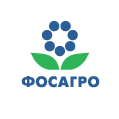
Riyadh – PhosAgro (Russia) and Ma’aden (Saudi Arabia) – two of the world’s leading fertilizer producers – and the Russian Direct Investment Fund (RDIF) have signed a cooperation agreement to support global food security through the use of environmentally friendly phosphate-based fertilizers. The signed agreements were exchanged today in the presence of Russian President Vladimir Putin and Saudi Arabia’s King Salman bin Abdulaziz Al Saud.
The agreement was signed by PhosAgro CEO Andrey Guryev; Ma’aden President and CEO Darren Davis and RDIF CEO Kirill Dmitriev during a state visit to Riyadh by Russian President Vladimir Putin.
The parties plan to explore the potential for cooperation aimed at raising awareness on the part of the global community of the importance of using safe fertilizers to protect human health and the environment.
The companies also plan to assess the prospects for working together to educate farmers about advanced fertilization techniques that maximise the impact of fertilizers and considerably increase the yield and quality of crops.
In addition, the parties plan to explore the potential for sharing best practices and best available technologies to increase production efficiency and minimise any negative impact on the environment, as well as the prospects for investment cooperation and collaboration in the development of innovations.
PhosAgro and Ma’aden are both key players in the global fertilizer sector and in supporting global food security. PhosAgro was the first Russian company in the history of the UN Food and Agriculture Organization (FAO) to be selected to implement a global soil protection initiative. The project, called “Development of sustainable agriculture through the implementation of the Global Soil Doctors Program and the creation of a Global Soil Laboratory Network”, aims to educate farmers about more effective solutions in the area of sustainable agriculture (especially in terms of soil fertility).
The phosphate-based fertilizers produced by both companies meet the most stringent standards for the cultivation of environmentally friendly agricultural products. This is especially important in light of the world’s growing concern about the safety of agricultural products grown using fertilizers with high levels of heavy metals such as cadmium. When toxic substances accumulate in the body, they can cause serious illness in humans.
In May of this year, a historic decision was made to ban the circulation of phosphate-based fertilizers with high levels of heavy metals in the EU starting from 2022, along with the simultaneous introduction of voluntary green labelling for fertilizers with cadmium content below the safe level of 20 mg/kg of P2O5. The FAO has followed the EU’s example: The International Code of Conduct for the Sustainable Use and Management of Fertilizers, launched by the FAO, recommends that the governments worldwide introduce restrictions on the circulation of fertilizers containing high levels of toxic substances.
PhosAgro and Ma’aden recently completed major capital expenditure projects involving the construction of production facilities that use the best available technologies, allowing them to increase production output.
PhosAgro CEO Andrey Guryev said: “When it comes to sustainable development, PhosAgro and Ma’aden share a common goal: to guarantee the world’s population access to safe, high-quality food. In the long run, this objective can only be achieved through the widespread use of highly efficient fertilizers that do not contain toxic impurities that are harmful to humans and to soil fertility.
“Our companies’ products meet the most stringent environmental standards, and we feel that we have a responsibility to raise global awareness about the issues of soil degradation and the risks to human health associated with the use of fertilizers with high levels of heavy metals such as cadmium.
“This is especially important in light of the following paradox: European regulators have created trade barriers for the EU market in the form of a 6.5% import duty for the cleanest fertilizers from Russia and Saudi Arabia. In fact, the EU and a number of major countries around the world, such as India and Vietnam, are impeding their citizens’ access to high-quality products. Working to remove these restrictions offers great potential for partnerships between companies that produce environmentally friendly fertilizers.
“It is important that the agreement also provides for the study of the possibility for PhosAgro and Ma’aden to exchange experience in terms of improving the efficiency of fertilizer production and reducing their environmental impact.
“I am certain that the implementation of this cooperation agreement, with the support of RDIF, with its extensive expertise gained over years of working with partners from Saudi Arabia, will lay a solid foundation for cooperation between two leading producers of phosphate-based fertilizers in the interests of food security and the well-being of future generations.”
Ma’aden President and CEO Darren Davis said: “Our companies have enormous potential for cooperation, which includes the exchange of advanced production practices, support for promising scientific developments and investment cooperation. A particularly important goal – one that the sustainable development of the planet depends on – is to inform the public about the risks of using fertilizers with high levels of toxic impurities, so that farmers can make more informed decisions when choosing crop nutrients to grow food.
“The agreement that we signed will enable these two global leaders in the production of environmentally friendly fertilizers to specify the areas in which they can realize this potential and build close business ties that will benefit all stakeholders.”
RDIF CEO Kirill Dmitriev said: “The signing of this agreement between PhosAgro and Ma’aden, the world’s largest producers of phosphate-based fertilizers, will be an important component of the dynamically developing partnership between Russia and Saudi Arabia.
“An important aspect of the agreement is studying potential for investment cooperation between the parties. The RDIF, which has successful experience in working with foreign partners, including from Saudi Arabia, will provide the expert support necessary to achieve this goal.”
